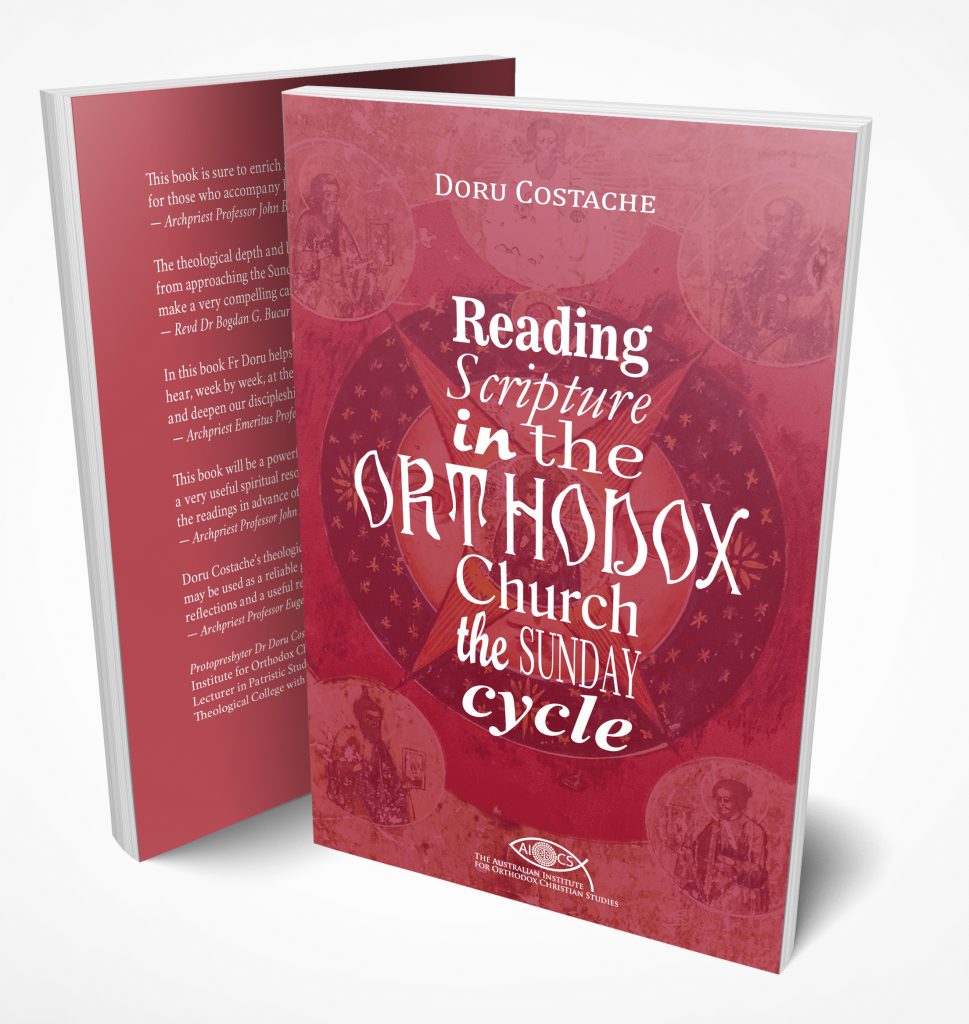The AIOCS Short Courses 2021
[Free content © AIOCS]
The Pre-Lenten Narrative: Preparatory Reflections
The third part: The Thirty-Fourth Sunday after Pentecost
4 March
Protopresbyter Dr Doru Costache
The scriptural readings prescribed for this Sunday: 1 Corinthians 6:12–20. Luke 15:11–32.
An interpretive framework: Doru Costache, Reading Scripture in the Orthodox Church: A Diary (Sydney: AIOCS Press, 2018) 86–87.
Summaries
1 Corinthians 6:12–20 The apostle points out that all things are good when taken in moderation and with discernment. Since not all things are beneficial, we must learn what to partake of and what to avoid. This is because not all things nurture the inner being—the temple of the Spirit, God’s presence within our very hearts.
Luke 15:11–32 The Lord told the story of a man who had two sons, the youngest of whom asked for his inheritance and left for a distant country. There he spent his fortune by generously giving to those around him. But when the well dried up, all his friends disappeared, leaving their benefactor on his own. The once wealthy young man was hired by a pig herder and he experienced solitude and hunger. He decided to return to his father, who welcomed him and gave him back the original signs of sonship. Following his return, a feast was given in his honour. Tragically, the eldest son, who was self-righteous and judgmental, refused to welcome back his brother and accused their father of injustice.
Wisdom
The third stage of pre-lenten preparation develops the message of the previous two Sundays. The returned son in the parable recalls Zacchaeus and the repentant tax collector. In turn, the figure of the eldest son matches the twisted character of the “righteous” pharisee and of the judgmental inhabitants of Jericho. By reiterating the two typologies, the repentant sinner and the judgmental person, this Sunday casts a clarifying light upon the lenten narrative, which reads along the following lines: when we keep the fast, we must refrain from judging others for their sins. We must learn how to eat lenten food without biting into the flesh of our neighbour. We must actually begin to love people, regardless of who they are and how they live. But the parable discloses yet another principle of true fasting—the need of spiritual exercise. We must focus on our Christian identity, discerning what we should undertake in order to keep it unadulterated. In short, we must adopt a corresponding way of life. And since we have been made worthy of becoming a temple of the Spirit, we must honour the divine indwelling by living a spiritual life. The stories of saints such as Basil the Great and Silouan the Athonite plainly show that no one should take the presence of the Spirit for granted. In order to remain a divine temple, one ought to live for the Spirit, not be enslaved by the things of this world. It is true that God has created all things, allowing us to use and enjoy them. But one who lives in the Spirit knows how to do so in a fitting manner. Moderation is essential. But even if we fall short of this standard, as can happen, we should take heart. The love of God forgives all who return, restoring them to the glory of divine adoption.
Message
Indwelled by the Spirit, true Christians love people and abstain from excesses.
Keywords
fasting, discernment, judgmental, return, spiritual
4 March 2021 © AIOCS
Please support our not-for-profit ministry (ABN 76649025141)
For donations, please go to https://www.paypal.com/paypalme/aiocsnet or contact us at info@aiocs.net


